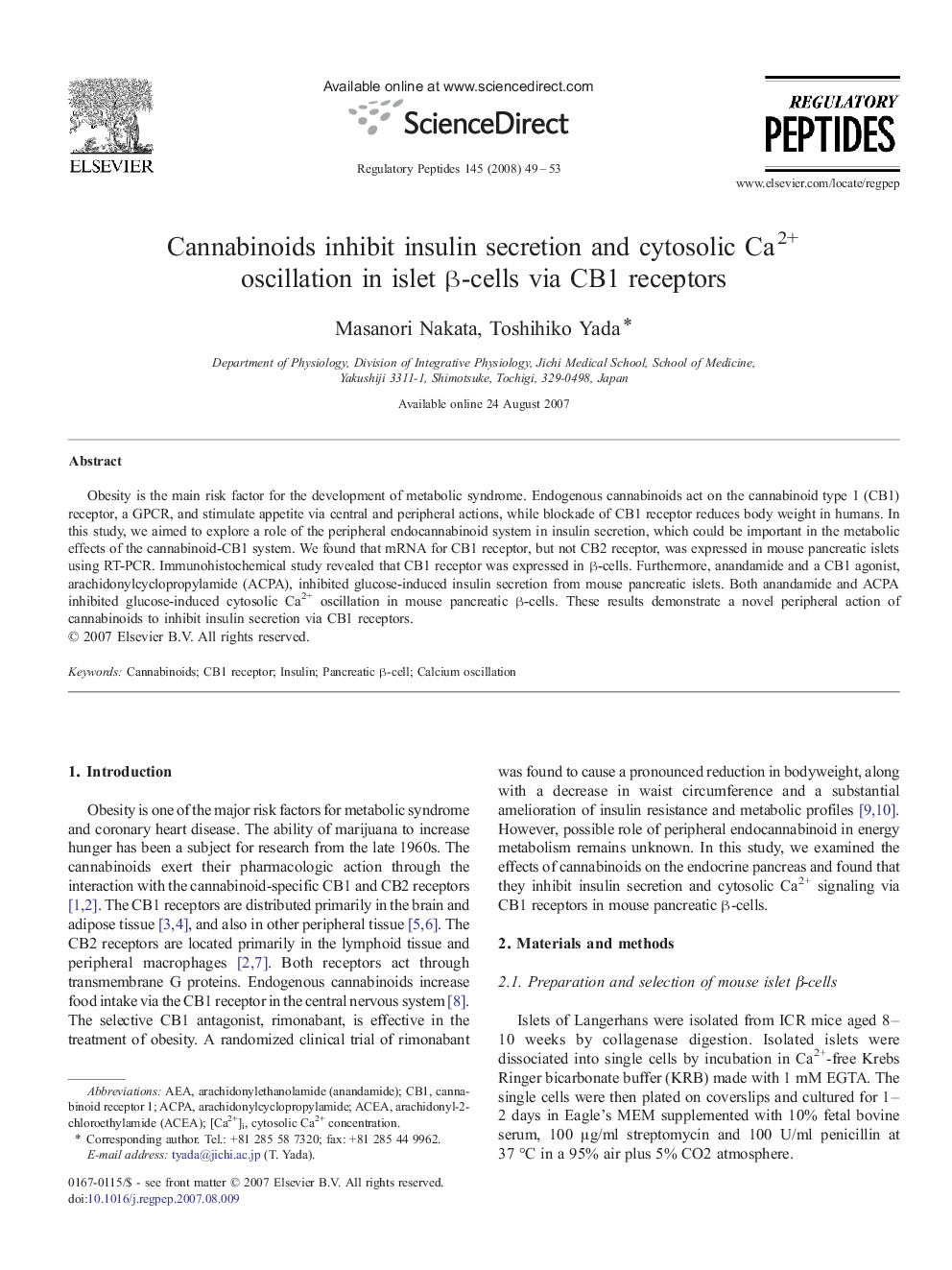| Article ID | Journal | Published Year | Pages | File Type |
|---|---|---|---|---|
| 2023320 | Regulatory Peptides | 2008 | 5 Pages |
Obesity is the main risk factor for the development of metabolic syndrome. Endogenous cannabinoids act on the cannabinoid type 1 (CB1) receptor, a GPCR, and stimulate appetite via central and peripheral actions, while blockade of CB1 receptor reduces body weight in humans. In this study, we aimed to explore a role of the peripheral endocannabinoid system in insulin secretion, which could be important in the metabolic effects of the cannabinoid-CB1 system. We found that mRNA for CB1 receptor, but not CB2 receptor, was expressed in mouse pancreatic islets using RT-PCR. Immunohistochemical study revealed that CB1 receptor was expressed in β-cells. Furthermore, anandamide and a CB1 agonist, arachidonylcyclopropylamide (ACPA), inhibited glucose-induced insulin secretion from mouse pancreatic islets. Both anandamide and ACPA inhibited glucose-induced cytosolic Ca2+ oscillation in mouse pancreatic β-cells. These results demonstrate a novel peripheral action of cannabinoids to inhibit insulin secretion via CB1 receptors.
